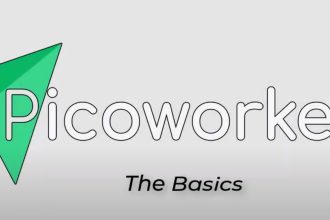Are you a military veteran? Looking to buy a home? If so, you’d probably be interested in learning about VA loans.
VA loans are specifically designed for veterans and can help them get into homes without a down payment or good credit. Interested in learning more about VA home loans? We’re going to cover them in detail below.
The Pros of VA Loans
VA loans come with a number of positive attributes. The most prominent of these attributes include the following.
No Downpayment Required
Perhaps the best of the VA loan’s attributes is that it doesn’t require any downpayment. You can purchase a home with a VA loan without having to put any money down at all.
This isn’t true of most other loans, which can require anywhere from a 3.5% downpayment to a 5% downpayment to as much as a 20% downpayment. In fact, the only other loan that doesn’t require a downpayment is the USDA loan, and that requires you to purchase a home in a rural area of the country. VA loans have no such restriction.
No Private Mortgage Insurance
One of the caveats of taking out a mortgage without putting down at least 20% of the purchase price is that you have to pay private mortgage insurance until 20% equity is reached . . . that is unless you take out a VA loan. VA loans never require private mortgage insurance, even if there’s no downpayment at all.
This can be a pretty big deal considering that private mortgage insurance is equal to anywhere from 0.58% to 1.86% of the mortgage’s original amount per year. On a home of $250,000, that would be between $1,450 and $4,650 yearly. That’s between $120 and $400 every month.
Consider how much money you would save by not having to pay this for the first few years of the loan. We’re talking several thousands of dollars.
Higher Debt-to-Income Allowances
When applying for a loan, lenders will consider your debt-to-income ratio. This is a percentage of how much of your income is used to pay off monthly debts. The higher your debt-to-income ratio, the harder it is for you to get a mortgage.
Note, though, that VA loans often have higher allowances than most other types of loans. Conventional lenders are legally allowed to provide loans to those with debt-to-income ratios of up to 50%. However, a good many of them cap debt-to-income ratios at 36%.
VA loans, on the other hand, cap debt-to-income ratios at 41%. So, if you’re still in the process of paying off debt, a VA loan might still allow you to purchase a residence.
Leniency After Foreclosure
Let’s say you buy a home and are unable to make payments on it. As a result, your house gets foreclosed on.
In most scenarios, this would prevent you from getting a mortgage for 7 years (conventional loan) or 3 years (FHA loan). But in the case of the VA loan, you would only have to wait 2 years.
In other words, there’s less risk involved when using a VA loan. Because of the leniency allowed after foreclosure, you can be more aggressive in your home buying endeavors.
Cons of VA Loans
Yes, VA loans come with a variety of benefits. However, they do have some cons, including the following.
Funding Fees
Though VA loans don’t require you to pay private mortgage insurance, they do require you to pay a funding fee. These fees are used to keep the program operational.
Funding fees for VA loans fluctuate a bit based on your downpayment. For first-time VA loan users, they range from 1.4% to 2.3% of the home’s purchase price. If another VA loan is obtained after the first one, these fees will range from 1.4% to 3.6% of the home’s purchase price.
Note, though, that you only have to pay this fee once. This happens at the closing of the sale, and the cost can be rolled into the mortgage.
So, let’s say you’re buying a $250,000 home with a $35,000 downpayment. In this case, you would pay 1.4% of the home’s purchase price in funding fees, or $3,500.
Skepticism From Sellers
For a variety of reasons, some sellers are reluctant to accept VA loans. This is generally because VA loans put an additional financial onus on the sellers, hamstringing them with a bevy of new responsibilities. In other words, VA loans have the potential to turn the transaction into a bit of a headache.
So, while most sellers will accept a VA loan, some won’t. And, in situations in which several bids are being placed, those with VA loans might be put on the backburner.
How to Obtain a VA Loan
We’ve discussed the pros and cons of VA loans. Now, you might be wondering how to go about getting one.
It’s really as simple as talking to your local mortgage lender and mentioning that you’re interested in taking out a VA loan. Your lender will inform you of terms and interest rates and will help you start the paperwork.
Once you’ve been pre-approved, you can begin your house search and find a residence that your loan will cover. It’s best to work with a real estate agent throughout this process, particularly one that’s versed in the use of VA loans. He or she will help you find homes whose sellers are okay with accepting VA loans.
When you find a home, you can go back to your mortgage lender and start the transactional process. This will take a few weeks (or months) but will (hopefully) result in the purchase of your home.
VA Loans Are the Ideal Option for Most Military Veterans
In truth, if you’re a military veteran, you would probably best benefit from taking out VA loans. These loans offer a number of benefits that you won’t find in other home loan programs and can go on to save veteran homeowners substantial amounts of money over the years.
Looking for info on similar topics? Our website has you covered. Check out some of our other articles now!















